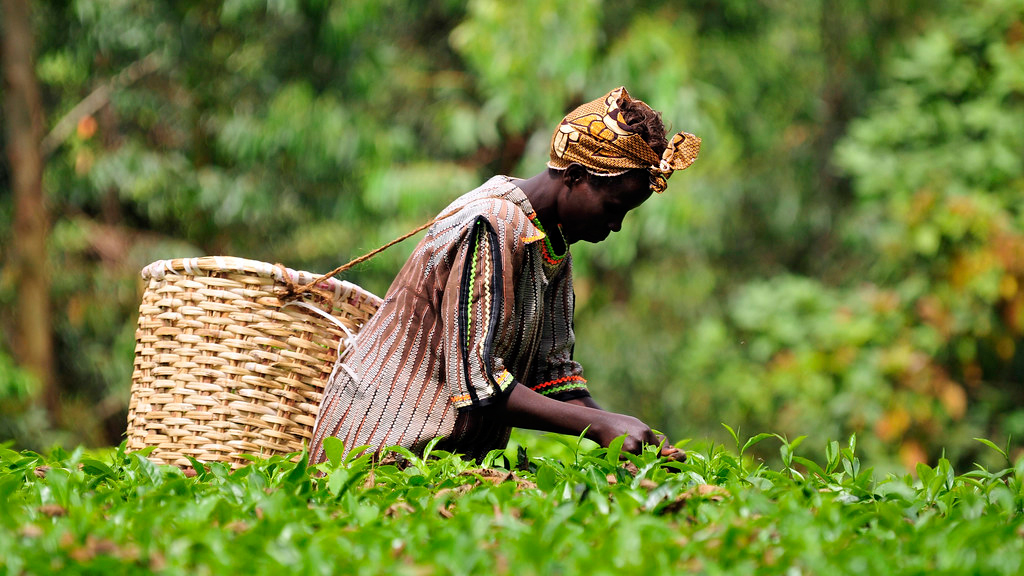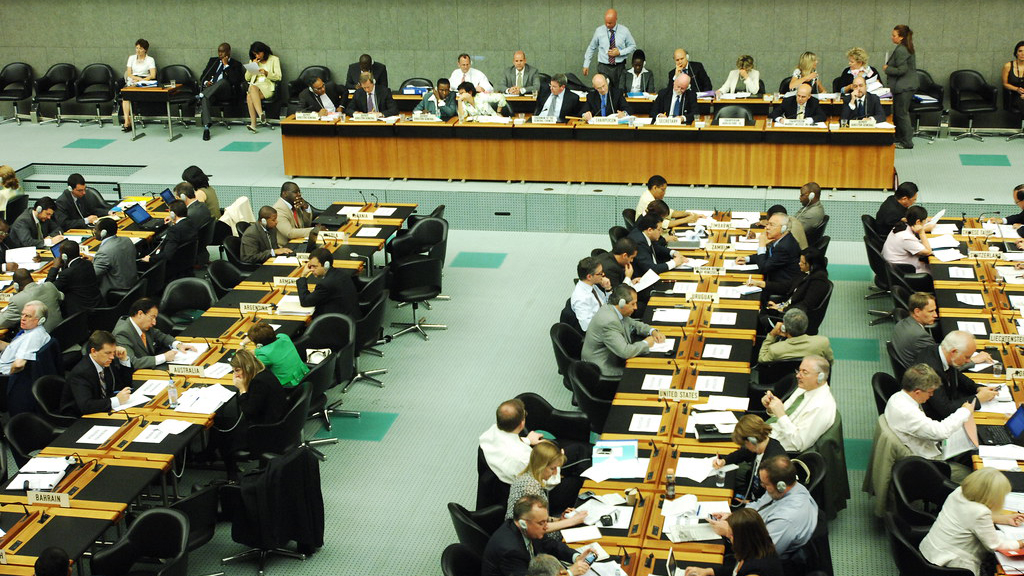Following the ‘Must Fall’ campaigns in South Africa and the UK, debates on decolonisation have drawn attention to the extent of continuing colonial violence. But rather than create meaningful practical change, decolonisation is still seen as simply a way to view knowledge production, teaching and learning. Mpumi Tshabalala explores these barriers to decolonisation as practice – how a critical mass of Black people could re-centre themselves in conversations about decolonisation and Africa.
This post is part of the blog and podcast series Citing Africa which explores the global construction and imbalances of knowledge production.
Decolonisation debates within academia have recently been revived by South Africa’s #Fallist movements – the university protests which include #RhodesMustFall, #FeesMustFall and the associated ‘MustFall’ campaigns between 2015 and 2017. At its most climactic heights, both the state and universities responded to #Fallism with violence and surveillance.
In contrast, while pursuing a postgraduate degree at a UK university I observed how decolonisation is understood within the colonial hub and the lengths to which my university is behind on the issue. I continue to ask myself 1) what role (if any) having a critical mass of Black people in a space shapes discourse; 2) how the UK continues to evade responsibility for the role that it played in colonialism and how simplified understandings of racism make this possible; and 3) why there could be such cognitive dissonance between academics who talk about decolonisation and universities’ lackadaisical responses to Black students’ formal complaints about their experiences of continuing colonial violence.
#Fallism is by no means homogenous, but on the whole it embodies decolonial practice in action. It calls on universities not only to talk about decolonising – while continuing to benefit from the reputational and financial rents from studies on “Africa” – but to actually decolonise. As an entry point to address ongoing colonial practices, #RhodesMustFall sought the acknowledgement and redressal of the ongoing trauma currently inflicted on historically disadvantaged and marginalised groups caused by its tangible, symbolic colonial signifiers on campus. The politics of the memorialisation of Cecil John Rhodes, with his statue on the University of Cape Town’s campus, recognises that symbolic references that serve to celebrate coloniality necessarily ‘white-wash’, if not expressly obfuscate, the content and extent of colonial violence.
#Fallism also advocates for universities to acknowledge and respond to the fact that colonial domination is not simply historic. It is continuing and maintained by current practices. #FeesMustFall expressly acknowledges that as a consequence of colonialism Black students, presently, cannot afford the social mobility provided by tertiary education – a cycle only serving to deepen racial inequalities. Furthermore, the continued practice of outsourcing universities’ blue-collar labour services maintains exploitative colonial relationships between organisations and Black labour, where labour is extracted with complete disregard for the welfare of those compelled to supply it. Outsourcing is a practice that maintains the commodification of Black bodies and allows universities to evade responsibilities owed towards its most vulnerable workers.
Critical mass
It is a palpably distinct endeavour to navigate spaces when one’s racial profile is reflected in those around you and when it is not. My experiences with inequality have led me to wonder whether critical mass plays a subconscious role: when individuals are intentionally or unintentionally compliant with racism (or any other -ism), does the mind subconsciously evaluate the chance that the racist (sexist, etc.) behaviour will result in punishment, sanction and/or social cost? Could it be that when retribution is less likely people take less time to evaluate the prejudicial impact of their behaviour? If so, the mere presence of Black/female/gender non-conforming/differently abled bodies may help to curtail the interpersonal elements of racism, sexism, misogyny, homophobia and ableism. We might therefore ask whether naked quotas are a meaningful way to address historical exclusion. Regardless, absence of critical mass may explain the more scandalous arguments I have heard voiced by those in power seeking to gatekeep against attempts at decolonisation.
In one illustrative case, in 2019, Black students at my UK university lobbied for a constitutional amendment that would require a Black representative on the student representative body, and a senior, white, male lecturer opposed it. He claimed it would be too difficult to prove that Black people – coming from disparate parts of the world, possessing a socially constructed racial identifier – would have sufficient commonality as a group to warrant representation as a class. Such an argument, by contrast, would not be tolerated in post-#Fallist, South African spaces. It would be seen as an affront to political organisation rights, called out for its complete erasure of Pan-Africanist intellectual thought and exposed for denying the ubiquitous nature of anti-Black racism and white supremacy.
#Fallism grants (rebuttably presumptive) weight to the experiences of subaltern groups. Thus the politics of representation, employed by #Fallists, demands representation of marginalised groups in positions of leadership. (Furthermore, it is wholly legitimate to create and maintain white-free meetings and spaces.) That is not to say that all Black people and womxn will necessarily have the ability (or inclination) to lead decolonial activism, yet there is a critical mass who can and it is believed that they are better placed to do so.
In the UK, however, Black people remain the numerical minority and white men continue to dominate academic panels, scholarship and governance, even regarding issues of decolonisation. Their propositions, and any subsequent decisions made, are seen as inherently credible.
Racism’s duality
A 2014 YouGov poll found that 59% of the British public think the British Empire is ‘something to be proud of’, compared to 19% thinking it is something of which to be ‘ashamed’; 49% think that overall Britain’s former colonies are better off having been colonised. In my UK courses, I noted the glaringly absent conversations about how colonialism currently informs the economic enrichment of (Great) Britain. In South Africa, even though the violence of colonialism is yet to be truly named, understood and atoned for in public discourse, Apartheid has been named as the social evil from which we hope to have ‘transitioned’. There is moral impetus upon white South Africans to think about Apartheid as an unjust system that served to benefit them – a position which many dismiss altogether but are nevertheless often forced to confront. However, the fact that the UK, through colonialism, was unjustifiably enriched at the expense of African countries (among other nations) can only be internalised if racism’s duality is understood.
In South Africa, #Fallism served to educate the public on the dual nature of racism (and all other -isms). Racism is not merely an expression of interpersonal prejudice committed by one individual who intends to act pejoratively towards another; racism includes a structural, institutional component that informs societies’ formal rules, cultural values and social norms. Acknowledging the structural component of racism is to acknowledge that it can be reproduced without intent and/or malice by individuals complicit in its reproduction. Knowing this completely changes the nature with which one reacts to allegations of racism and sexism, or coloniality more widely. For this reason, among others, the more polite (yet violent) ‘colour-blindness’ discourse dominates a lot of the UK’s decolonial spaces.
Formal vs substantive decolonisation
Culturally, I find the British penchant for rules and rule-following fascinating. I observed individuals making decisions to take recourse to formal rules, choosing to follow the letter of the law at the expense of its spirit. South African constitutional law is laden with substantive equality norms preferencing substance over form. UK decolonial discourse has shown that universities continue to engage in decolonial theory but not its praxis. Decolonialisation is not simply a way to view knowledge production, teaching and learning, it is also practice. Decolonisation is not just a noun; it is a verb. It requires consistent examination of the relationships of power between coloniser and colonised with the aim to subvert the harmful practices of the former.
This examination means acknowledging that the exercise of power by both coloniser and colonised dialectically reverberate against one another, seeking states of structural and behavioural (institutional) equilibria over time. Decolonisation must always examine the application of rules and behaviours by organisations and individuals in their context, looking at how the rules impact those affected. It is also crucial to note that the colonised are not exempt from exhibiting the same harmful practices of the colonial culture. Moments in which individuals and organisations exercise power in line with colonial logic at their core are either evidence of and/or serve to reinforce beliefs about human superiority and inferiority. Not only must we consider curriculum content and representation at the lecturer level, but also examine how we engage with marginalised people within the university who bear the personal cost of its failings.
It is not surprising that where conversations about decolonisation are happening in and around post-#Fallist, South African spaces, they are occurring at a much more nuanced level. There is greater willingness by those committed to apply decolonial thinking not only intellectually but interpersonally.
In South Africa I have observed many more examples of white people, men, cis-het folk and those in higher brackets of living standards exhibiting a much greater tolerance to being called out. #Fallism sought to re-centre Black people and womxn in knowledge production, whereas in the UK I wonder whether there is the critical mass of Black people and/or Africans with the political power to significantly re-centre themselves in conversations about decolonisation or the continent itself. This is particularly the case when Black people are already so marginalised, and overburdened, by the universities in which they hope to form a valued part. This dearth of Black and African people within the UK’s systems of knowledge creation implicates its universities in maintaining not only colonial logics but structures of global inequality.
Photo: Statue of Cecil Rhodes at Oxford University. Credit: Howard Stanbury, Flickr.





